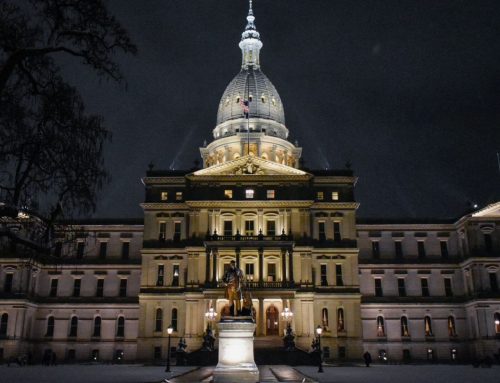Michigan House Approves 24% Tax on Wholesale Cannabis Sales for Road Repairs
LANSING – In a swift move to head off a potential state government shutdown, the Michigan House of Representatives passed legislation imposing a 24% excise tax on wholesale Cannabis transactions, directing the proceeds toward long-overdue road and bridge maintenance. The measure, part of a broader $33 billion budget agreement between lawmakers and Gov. Gretchen Whitmer, cleared the chamber on a 78-21 vote and now advances to the Senate for consideration.
The tax targets sales from cultivators and processors to retailers, with state officials estimating it will yield $420 million each year once fully implemented in 2026. Combined with reallocations from gas and corporate income taxes, the package commits an extra $1.5 billion annually to transportation projects, a figure that addresses Michigan’s persistent infrastructure deficits, where roughly 40% of roads rate as poor or mediocre, according to federal assessments
Lawmakers framed the Cannabis levy as a pragmatic fix in a fiscal crunch. “We’re putting Michigan’s resources to work where they’re needed most,” said Rep. David Martin, R-Mount Pleasant, a co-sponsor of House Bill 4951, the Comprehensive Road Funding Tax Act. The bill’s rapid passage [debated and voted on within hours] reflected the urgency of the September 30 deadline for finalizing the state budget.
Yet the provision has drawn sharp criticism from the Cannabis sector, which views it as an abrupt hit to an industry still navigating post-legalization challenges. The Michigan Cannabis Industry Association announced plans to challenge the tax in court if it becomes law, arguing it could drive up costs for operators already squeezed by market saturation and federal banking restrictions. “This isn’t revenue generation; it’s a penalty on growth,” association executive director Jeff Wilcox said in a statement. Industry data shows Michigan’s recreational market generated $415 million in tax revenue last year, but sales volumes have dipped 15% amid oversupply, raising questions about whether the new levy will deliver its promised haul without stifling demand.
From a fiscal standpoint, the tax aligns with a national trend where states increasingly tap Cannabis proceeds for general funds. But Michigan’s choice to earmark it exclusively for roads breaks from the pack, where health and education typically claim the lion’s share. Analysts note this could set a precedent: if sales hold steady at current levels, the tax might cover 28% of the road boost, assuming no significant price hikes at retail. Pass-through effects, however, remain a wildcard; a 24% wholesale markup could inflate consumer prices by 10-15%, based on similar levies in Illinois and Colorado, potentially eroding the 7% year-over-year sales uptick seen in Michigan through mid-2025.
The Senate’s review, expected today, will test the bill’s staying power. Bipartisan support in the House suggests momentum, but amendments could soften the tax rate or broaden its base.
For the Cannabis trade, this episode signals a maturing [if tense] relationship with state coffers. At Highly Capitalized Network, we’ve tracked how such policies can accelerate infrastructure wins while testing market resilience. Michigan’s operators, resilient through regulatory twists before, now face a clear directive: adapt to contribute, or risk being sidelined in the revenue conversation. The real measure of success will come not in dollars raised, but in miles paved without derailing the green economy’s forward drive.




































